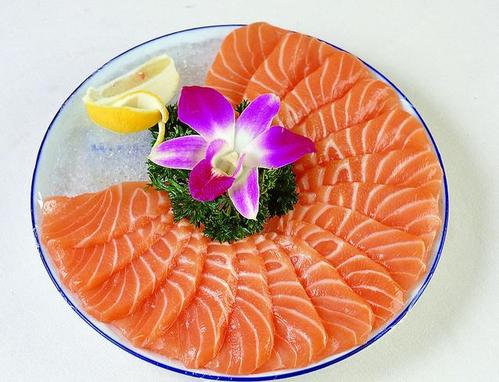Salmon practice

Salmon is rich in unsaturated fatty acids, rich in protein, calcium, iron and vitamin D, and easy to digest and absorb, especially suitable for eating and supplementing nutrition, whether for the elderly or children are good food choices. The following is to introduce the practice of salmon.

Nutritional value of salmon
Salmon is rich in protein, vitamins A、B、E, zinc, selenium, copper, manganese and other mineral forms related to immune enzymes, nutritional value is very high. Salmon is also rich in unsaturated fatty acids, which can improve the activity of brain cells and raise high density lipoprotein cholesterol, thus preventing cardiovascular disease. As high as 0.73% of vitamin E and polyunsaturated fatty acids, salmon has high nutritional value and balanced nutritional distribution.
A Swedish scientist has confirmed that a woman who eats salmon once a week may have less kidney cancer than anyone else. If you often eat salmon, the risk of kidney cancer is 74% lower than those who do not eat salmon. Ω-3 unsaturated fatty acids extracted from salmon can eliminate the active biological substances that damage skin collagen and skin moisturizing factor, and play the role of anti-wrinkle. Salmon contains Ω-3 unsaturated fatty acids can reduce the content of triglycerides in human blood, by raising high density lipoprotein cholesterol, enhancing vascular elasticity, effectively reducing blood lipids and blood cholesterol. It has a good effect on the prevention and treatment of cardiovascular disease and Alzheimer's disease.

Can pregnant women eat salmon
Pregnant women can eat salmon. Pregnant women eat salmon can significantly reduce postpartum depression, and can reduce maternal edema, therefore, pregnant women can eat salmon, but can not eat a lot, and do not eat raw, raw salmon may contain parasites, Poor development of the baby.
Salmon has the effect of removing fat and lowering blood pressure, diuretic detumescence, improving immunity, deaf ear, bright eye, reducing sugar and eliminating thirst. Salmon's nutritional value is high, and salmon's nutritional value also accounts for a "golden ratio" of an ideal dietary value, that is, the ratio of ideal vitamin E to polyunsaturated fatty acids in food is 0.4, while that of salmon is as high as 0.73. It has the function of tonifying deficiency, strengthening spleen and stomach, warming stomach and middle, and can treat wasting, edema, indigestion and so on.